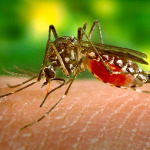First State-to-State Spread of Zika Magnifies Questions of Employer Liability
 Health officials reported the first spread of the Zika virus from state to state when a Texas man got the disease after visiting a section of Miami where mosquitoes have been spreading Zika.
Health officials reported the first spread of the Zika virus from state to state when a Texas man got the disease after visiting a section of Miami where mosquitoes have been spreading Zika.
The Zika virus can cause brain damage and other birth defects in infants if the mother is infected during pregnancy. While its dangers first appeared in Brazil, its spread to the U.S. has magnified questions about risk, including to workers whose employers want them to travel.
For example, what steps are employers legally required to take if they need an employee to travel to a hot zone? What is the liability if an employee contracts the disease, which also can be sexually transmitted and spread when a mosquito bites an infected person and carries it to someone else?
Androvett Legal Media & Marketing has posted an article on its website quoting Justin Markel, a labor and employment lawyer in the Houston office of Roberts Markel Weinberg Butler Hailey PC:
“Under the Occupational Safety and Health Act, employees may refuse to work in certain circumstances when working conditions are dangerous. Among other things, the employee must genuinely believe that an imminent danger exists, and there must be a real danger of death or serious injury. Because of the way Zika is transmitted and the availability of preventive measures, it is unlikely that an employee could refuse to travel on this ground – unless the employee is pregnant.
“However, employers should be cautious when an employee refuses such a work assignment. An employee could argue that she is protected by OSHA and is shielded from adverse employment actions.”
Markel says that employer liability depends in part on participation in the worker’s compensation system. In Texas, employers have the option of whether to participate, he notes. “If the employee is covered by workers’ comp insurance, and if it could be proven that the employee contracted Zika while working, then the employee may have a workers’ comp claim. That would also mean that workers’ comp benefits are the employee’s exclusive remedy.
“If the employer does not subscribe to workers’ comp, then the employer may be liable for failing to provide a safe work environment if the employer does not take reasonable precautions to protect against Zika exposure,” he says.
Markel says employers with workers in affected areas should focus on educating their workforce about precautionary measures. OSHA has published helpful guidance here. Employers should try to limit standing water near worksites, and employees working outside should use mosquito repellant and wear long sleeves and pants.




